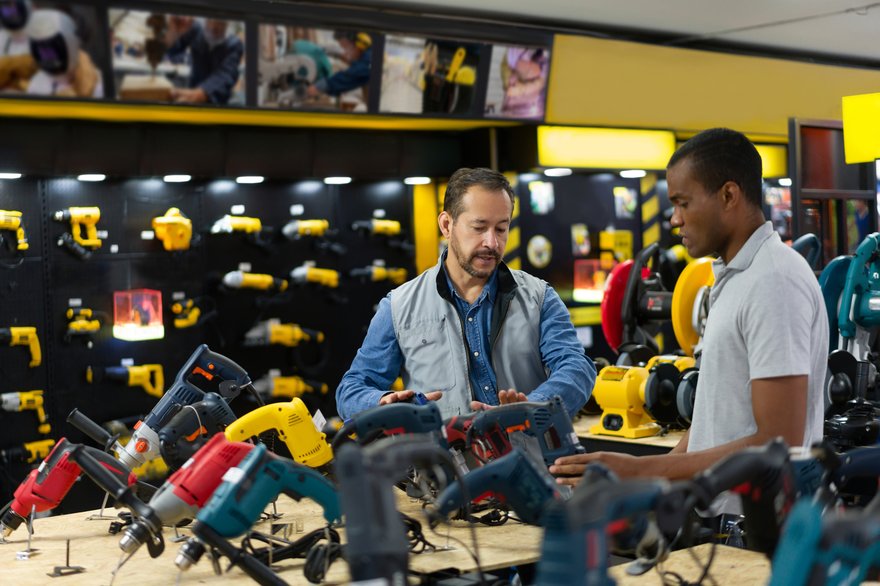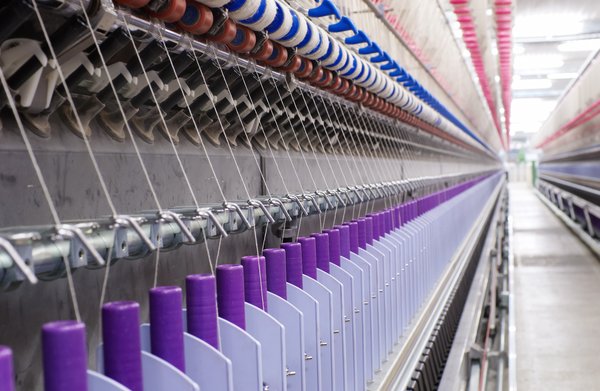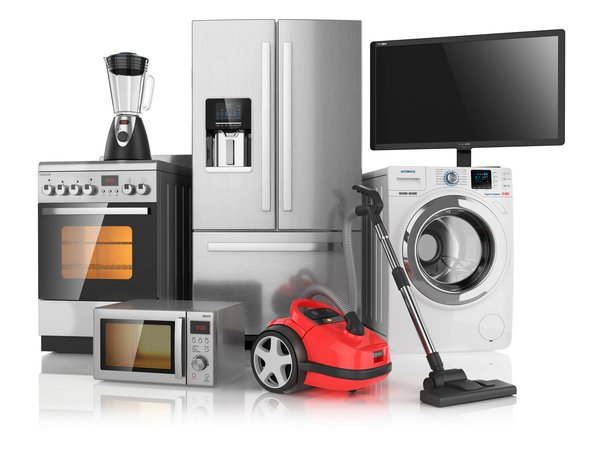Tool and hardware stocks offer investors a way to play two attractive long-term themes in the U.S. economy -- the desirability of owning and maintaining your own home or car. Anyone who does either is almost certainly going to contribute to the bottom line of the four companies featured here.

Our list
Publicly traded tool and hardware companies
| Company | Ticker | Market Capitalization | Activity |
|---|---|---|---|
| Home Depot | (NYSE:HD) | $356.7 billion | Home improvement retailer. |
| Snap-on | (NYSE:SNA) | $15.5 billion | Tools, equipment, and diagnostics for professional users. |
| Lowe's Companies | (NYSE:LOW) | $137.7 billion | Home improvement retailer. |
| Stanley Black & Decker | (NYSE:SWK) | $14.6 billion | Tools and storage, commercial security products, and engineered fasteners. |
1. Home Depot
1. Home Depot
The company is the behemoth in home improvement, but that doesn't mean it can’t gain market share. Management estimates its share of a large and fragmented U.S. market is only 15%, but structural changes are working in its favor.
An increase in e-commerce use in the hardware sector favors Home Depot. It has the supply chain ability and store density to offer an omnichannel strategy, including in-store pickup and digital ordering when viewing products in the store. Half of the company's U.S. online orders are picked up in a store, so, assuming this trend continues, outlets with more stores will be winners.
2. Snap-on
2. Snap-on
The company sells tools, equipment, and diagnostics aimed at the vehicle repair market. About 37% of sales go to vehicle repair technicians, 8% to vehicle repair shops, 28% to a broad range of commercial and industrial customers, with financial services making up the rest.
Snap-on is a play on growth in the vehicle repair market. It's primarily a function of the number of miles driven in the economy. A growing economy generally means more miles driven, and more miles driven means more maintenance, more repairs, and an increased need for tools to fix vehicles.
Snap-on benefits from two other trends. First, the average age of the U.S. vehicle continues to rise. The average car was seven years old in 1980; it’s now almost 12 years old. Second, the increasing complexity of vehicles creates an opportunity for Snap-on to sell more sophisticated, value-added equipment to vehicle repair technicians. It all adds up to a positive long-term environment for the company.
3. Lowe's Companies
3. Lowe's Companies
Many of the arguments discussed above for Home Depot also apply to Lowe's. In addition, Lowe's has an opportunity to play catch-up with Home Depot across a range of key metrics.
Back in 2010, the two companies had pretty similar metrics in terms of operating profit margin, return on invested capital, and free cash flow from assets.
 LOW FCF to Assets (TTM) data by YCharts |
Since then, however, Home Depot has pulled away from its main rival on almost every conceivable metric -- a fact that’s well-understood by Lowe’s CEO Marvin Ellison, who headed up Home Depot’s U.S. store operations from 2002 to 2014.
Given the operating margin differential between the two companies, if Lowe's raises its margin to merely match Home Depot's margin (roughly 15%), it would end up boosting operating profit by 25% without even increasing revenue.
Related investing topics
4. Stanley Black & Decker
4. Stanley Black & Decker
Investors often overlook the prospects of the world's best tool company. However, Stanley has a growth opportunity from developing brands it's acquired in recent years such as Craftsman, Irwin, and Lenox. Meanwhile, its legacy brands -- DeWalt, Stanley, and Stanley FatMax -- can build on the growth in sales and distribution channels created by the surge in consumer discretionary spending on do-it-yourself activity during the COVID-19 pandemic.
In addition, the company's 2021 acquisition of MTD Holdings transformed the company into a major player in the lawn and garden equipment category -- a complementary market to Stanley's DIY tools and existing outdoor products.
Stanley's leading position in the e-commerce market meant it was able to profit from the growing online segment. Putting all these growth drivers together, it's clear the company has the opportunity to increase sales at a mid-single-digit rate for many years.
























